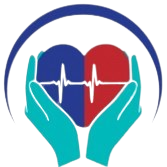Understanding the symptoms of cardiovascular diseases is crucial for early detection and timely intervention. By being aware of the warning signs, you can take proactive steps to protect your heart health. In this blog, we will delve into the common symptoms of cardiovascular diseases, empowering you to recognize and address them promptly.
Chest Pain or Discomfort: Chest pain or discomfort is a prominent symptom of cardiovascular diseases. It may manifest as pressure, tightness, or a squeezing sensation in the chest. If you experience persistent or recurrent chest pain, it’s vital to seek immediate medical attention.
Shortness of Breath: Feeling breathless or experiencing difficulty breathing, especially during physical activity or even at rest, can indicate an underlying heart condition. If you notice a persistent shortness of breath, consult a healthcare professional for a thorough evaluation.
Fatigue and Weakness: Excessive tiredness, weakness, or fatigue, even with minimal exertion, could be indicative of an underlying heart problem. If you find yourself feeling constantly drained, it’s essential to have your heart health evaluated by a healthcare provider.
Dizziness and Fainting: Frequent episodes of dizziness or lightheadedness, particularly accompanied by fainting or near-fainting spells, may signal an underlying heart condition. It’s important to seek medical attention to determine the cause and receive appropriate treatment.
Palpitations and Irregular Heartbeat: Heart palpitations, where you feel your heart racing, pounding, or skipping beats, can be a symptom of cardiovascular diseases. If you experience recurring palpitations or irregular heartbeats, it’s crucial to consult with a healthcare professional.
Swelling in the Legs, Ankles, or Feet: Unexplained swelling in the lower extremities, such as the legs, ankles, or feet, could be a sign of heart-related issues. If you notice persistent swelling, it’s advisable to consult with a healthcare provider for a thorough evaluation.
Sudden Weight Gain: Unexplained and rapid weight gain, particularly accompanied by swelling in the legs and ankles, may indicate fluid retention due to heart failure. Contact a healthcare professional to evaluate the cause and receive appropriate management.
Fluttering Sensation in the Neck: Experiencing a fluttering sensation or visible pulsations in the neck area could be associated with irregular heart rhythms. If you notice this symptom, it’s important to consult with a healthcare professional for further evaluation.
Conclusion:
Recognizing the symptoms of cardiovascular diseases empowers you to take action and protect your heart health. If you experience any of these symptoms or have concerns about your heart, don’t hesitate to consult with a healthcare professional. Remember, early detection and intervention can significantly improve outcomes and save lives. Stay vigilant, prioritize your heart health, and seek the necessary care to keep your heart strong and thriving.




